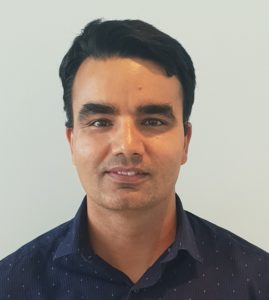
A Flinders researcher has won a major health grant by the Hospital Research Foundation to improve the health and wellbeing of the aged care community.
Dr Jyoti Khadka is aiming to improve the quality and safety of aged care by providing essential cost estimates for health care policy makers and aged care recipients and their families.
The work will help to facilitate interventions which can minimise incidents of poor quality and unsafe care, reduce system expenditures and maximise the health and wellbeing of Australia’s ageing community.
Dr Khadka joins fellow Flinders reseacher Professor Geraint Rogers in receiving a highly competitive research grant from the Hospital Research Foundation to help fight deadly diseases and improve the health and wellbeing of the community.
Dr Khadka is an optometrist by training, working in the Flinders optometry space for seven years before moving on to healthy ageing, health economics, health services and aged care research.
“My work surrounds around quality of life, eye diseases and frailty, plus I focus on improving aged care and also health care services for older Australians particularly those who are using aged care services,” he says.
The Hospital Research Foundation-funded project is titled Improving the quality and safety of aged care: “Health Economics Implications of Monitoring Safety and Quality of Aged Care in Australia”.
Dr Khadka says there is an “urgent need” to improve and benchmark quality and safety in aged care, as pointed towards in the Royal Commission into Aged Care Quality and Safety Interim Report.
“The Hospital Research Foundation grant will leverage the Registry of Senior Australians (ROSA) big data resources to investigate the health economic implications of such benchmarks,” he says.
The grant is connected to Dr Khadka’s other position at ROSA, SAHMRI, and is in collaboration with Caring Futures Institute research lead Professor Julie Ratcliffe, who is Dr Khadka’s supervisor and one of the co-investigators.
Associate Professor Maria Inacio, director of ROSA, and Professor Steve Wesselingh, director of SAHMRI, are also co-investigators.


